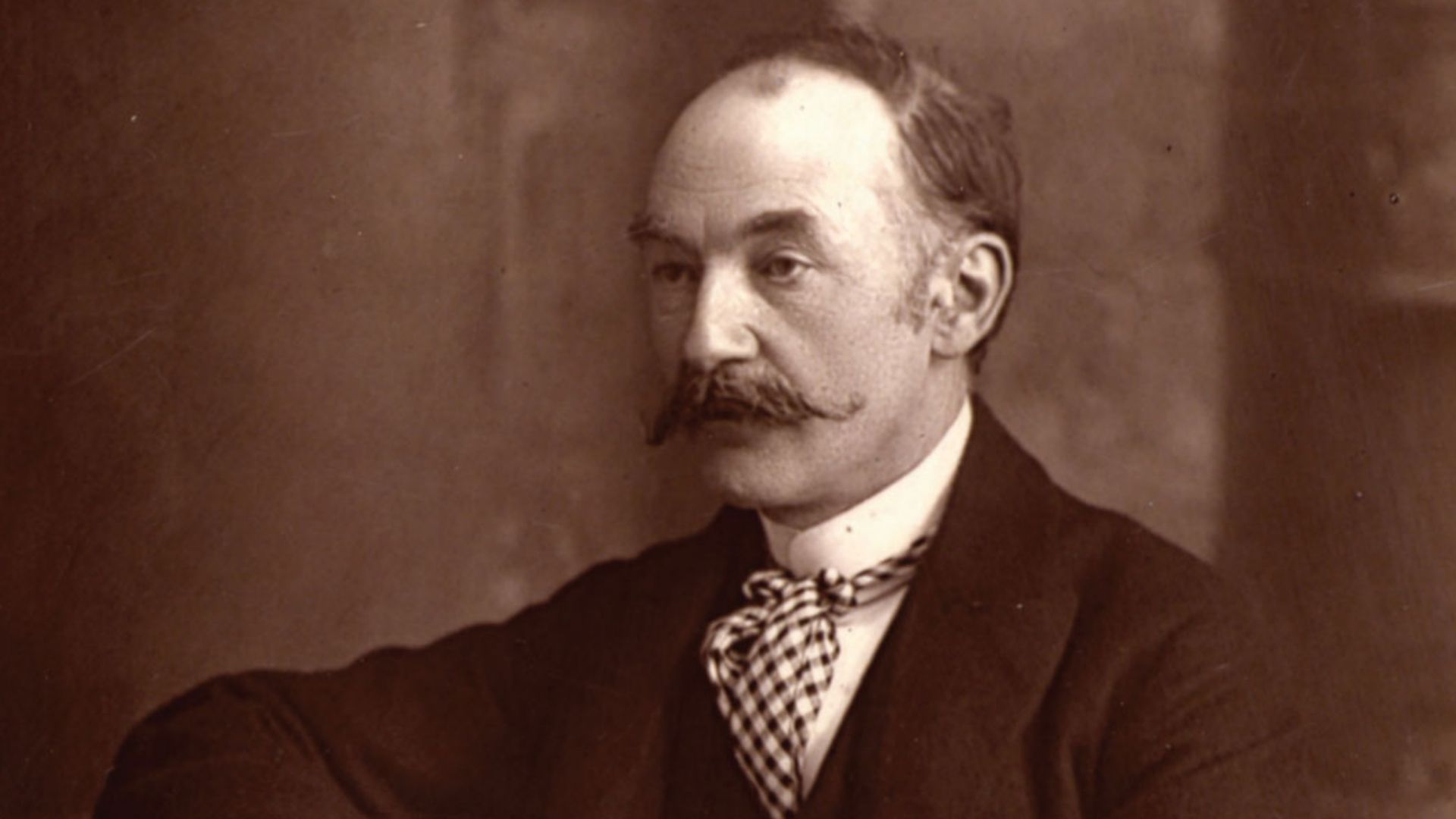The Darkling Thrush Poem by Thomas Hardy
The Darkling Thrush
I leant upon a coppice gate,
When Frost was spectre-gray,
And Winter's dregs made desolate
The weakening eye of day.
The tangled bine-stems scored the sky
Like strings of broken lyres,
And all mankind that haunted nigh
Had sought their household fires.
The land's sharp features seemed to me
The Century's corpse outleant,
Its crypt the cloudy canopy,
The wind its death-lament.
The ancient pulse of germ and birth
Was shrunken hard and dry,
And every spirit upon earth
Seemed fervorless as I.
At once a voice arose among
The bleak twigs overhead,
In a full-hearted evensong
Of joy illimited.
An aged thrush, frail, gaunt and small,
With blast-beruffled plume,
Had chosen thus to fling his soul
Upon the growing gloom.
So little cause for carolings
Of such ecstatic sound
Was written on terrestrial things
Afar or nigh around,
That I could think there trembled through
His happy good-night air
Some blessed Hope, whereof he knew,
And I was unaware.
One of my favorites. The evocation of place is outstanding. You feel the cold, sense the death and grayness of the surround. You empathize with the poet's mood. The sudden intervention of song from such a poor, forsaken creature brings tears. Life just may be worth continuing after all.
This poem is both beautiful and macarbre. In the first stanza the poet places himself in an evening winter landscape leaning on a gate surveying all that can be seen. Commenting on the length of day; the weather; the fact that everyone is at home around their hearth; one can see the picture painted is of a fruitless and barren time of year owing to the reference made to the vine. The second stanza begins with a personification and compares the landscape to the body of a corpse who has lived to be very old (100 years) was perhaps crippled or certainly at the end of life without substance or sapp as in youth. The reference to low clouds and wind add to the eerie, death like vision of the countryside which is barren and fruitless where nothing has the incentive or energy to grow. In the third stanza the poet reveals the powerful voice of a thrush and his effort to disrupt the scene. Finally, the poet can't understand what the bird finds to sing about. Perhaps there is a connection here between song and joy. The poets indication that the celebration of Christmas may be futile or a complete lack of faith are revealed in the final two lines where he questions hope. I always enjoy Hardy he is delightful. A Poet of the 19th Century he wrote poems and novels about those who lived in the countryside of southern England.
It is worth noting that the thrush in the poem has to be old and nearing his end because he symbolizes the death of the 19th century, which for Hardy is moribund and by implication threatens to cast its dark shadow over the century about to be born. Despite this the thrush is saying through his joyful song that the future is not all bleak and the poet shouldn't despair. The hope of which the thrush sings is for the return of spring. What the poet is hoping for is less clear.
I wonder why one particular Hardy poem and not others, equally deserving, attracts comments? The Darkling Thrush (suggestive title!) has a superb detailed setting of a wasteland scene, the more effectively to contrast with the redemptive voice of the thrush, first described at exactly the mid-point of the poem. It is significant that the bird, bringing ‘joy unlimited, ’ is described as ‘ancient, frail, gaunt and small’ as Hardy in old age wrote poems of outstanding merit – a possible parallel. ‘Bine-stems’ appears both in the original version of the poem and above, and this is also true of ‘aged’ thrush, so I’m unclear what Keith and Jack and are on about. What IS different is ‘his’ (not its) crypt in stanza two, line three, which becomes ‘his’death lament in line four. In stanza three the original reads ‘in’ (not ‘with’) blast-beruffled plume' –far better!
THE LAST: What I like most in this poem is the thrush a symbol for its possible rebirth through religious faith. Especially in these darkest days.
THREE: Amidst all sadness and futility, the darkling thrush sings a song, showing hope can be found even in the most desolate times. True amazing poem! Top Marks for this wonderful poem
TWO: The central idea of the poem is hope. The poem marks the end of a year, the century is coming to an end and the desolate wintery landscape makes it even more dejected.
Most deserving poem of Thomas Hardy. This masterful poem is written at the end of 1900 in December.
A fantastic positive message to bring forth into the new century. Definitely one of my favourite ever poets.
This poem has not been translated into any other language yet.
I would like to translate this poem
Great imaginations of the great poet on the new era of hope and changing into the new era which may be brighter than darkness and it is a great imagination there.